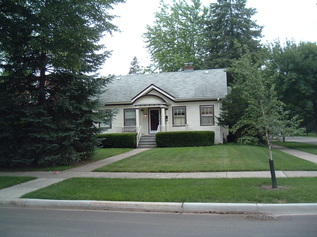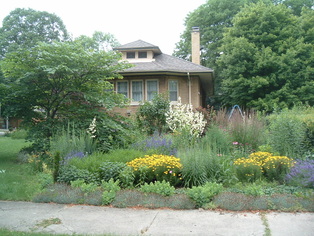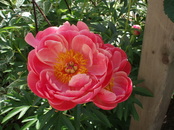|
From Adrian Ayres Fisher for Resilience.org:
What I would like to see is yards, blocks and neighborhoods where people choose to make at least part of their property into pollinator-friendly habitat. Every neighborhood should have (and probably already does have) a resident expert or several--folks with good ecological understanding who could help others learn how to garden in a way that is ecologically beneficial, as all gardening should be. Even though so many people have access to land (and even container gardens count as land), many, understandably, don’t have a deep knowledge of how to garden in an ecological fashion, or along the lines of reconciliation ecology. This could be a topic at block parties, community garden events, neighborhood association meetings and transition gatherings. A neighbor and I will be speaking and passing out plant lists at our block party later this month. It is up to us, all of us who have small patches of land stuck together in blocks and neighborhoods, who talk to our neighbors, who putter around in our yards. We can grow flowers (especially natives), put in spring-blooming shrubs and trees (preferably native), create clover lawns, make sure our vegetable gardens include flower beds, leave some ground undisturbed and resolve not to use insecticides. We can request our city governments and state legislatures to ban at least cosmetic use of neonicotinoids, as the state of Oregon did after 50,000 bumble bees died this spring. Much education--and action--is needed. City dwellers unite! Go forth and plant flowers!
0 Comments
Leave a Reply. |
RESOURCESwebsitesfilmsbooksmore |



